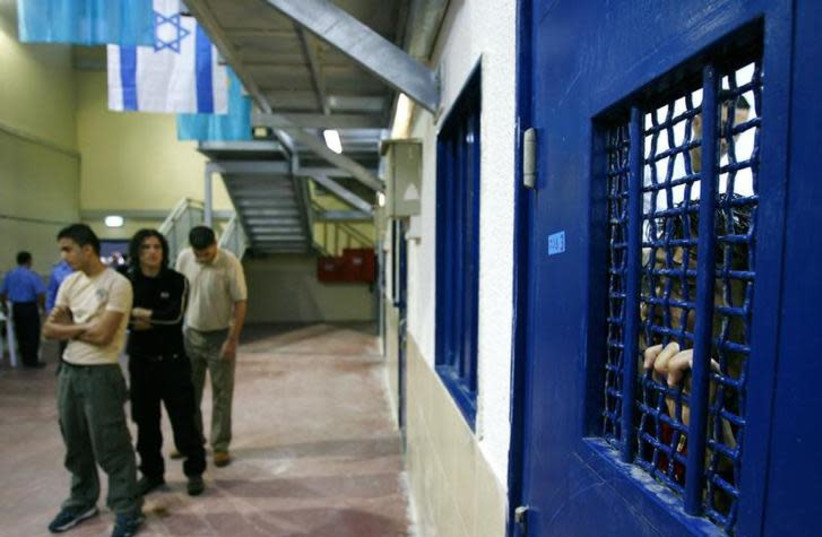The military wing of Palestinian Islamic Jihad (PIJ), the al-Quds Brigades, announced a general mobilization of its forces on Thursday, as 150 PIJ prisoners entered a second day of a hunger strike in protest of measures implement in Israeli prisons after the escape from Gilboa Prison.
On Wednesday evening, PIJ Secretary-General Ziyad al-Nakhalah affirmed that the movement "would not leave its sons in Zionist prisons as victims at the hands of the enemy.
"We will stand with them and support them with everything we have, even if this requires us to go to war for them, and no agreements or any other considerations will prevent us from doing so," he warned.
On Thursday, the al-Quds Brigades stated that they had received al-Nakhalah's statement and announced a general mobilization among its forces, saying "we are fully prepared, and we are at the ready."
While the PIJ had announced on Wednesday that 250 prisoners had started a hunger strike, a statement by the terrorist group on Thursday brought that number down to 150. The movement warned that its patience would not last and that it would remain in a state of general alert to defend the prisoners and support their escalatory steps, no matter the cost.

The movement stressed that the decision to launch the hunger strike came after a month and a half of negotiations with the Israel Prison Service and Shin Bet (Israel Security Service) in order to remove the measures implemented after six prisoners escaped from Gilboa Prison. The alleged measures include isolation and the distribution of prisoners to separate rooms in order to prevent them from organizing, according to the announcement.
Hamas and the Popular Front for the Liberation of Palestine (PFLP) expressed their support for the PIJ prisoners on Thursday.
PFLP Deputy Secretary-General Abu Ahmed Fouad stated on Thursday that the PFLP is "ready to put all its capabilities into the field in support of the prisoners."
Zaher Jabarin, a Hamas official responsible for prisoner affairs, stated on Thursday that the captive movement was managing the fight against the Israeli prison administration as a unified front and would not allow the singling out of any prisoner from any faction.
The Palestinian factions warned Israel on Thursday as well against "the continuation of its crimes against our prisoners in prisons," according to Al-Resalah news.
"We stress that if our prisoners are subjected to any harm, the Zionist enemy and its crisis leadership will be in direct confrontation with our resistance and our people," said the factions.
Six Palestinian prisoners under administrative detention have been on hunger strike for an extended period of time, including Kayed Fasfous (92 days), Muqdad Qawasmeh (85 days), Alaa Aaraj (68 days), Hesham Abu Hawwash (59 days), Rayeq Besharat (54 days) and Shadi Abu Akr (51 days), according to the Palestinian WAFA news agency.
Fasfous and Qawasameh are both in serious and deteriorating condition and refuse to accept medical aid, according to Palestinian reports.
Administrative detention is a special status in Israel where a detainee gets to argue for their release in a judicial proceeding, but the standards of the proceeding do not offer the same protections as regular criminal trials.
Due to some evidence against administrative detainees being based on classified intelligence, their defense lawyers often complain that they cannot properly defend their clients since only the court gets to view the full evidentiary file.
Palestinian media reported on Thursday that the High Court of Justice had decided to freeze Fasfous's administrative detention due to his health condition, although the decision still meant that Fasfous would not be allowed to leave the hospital.
